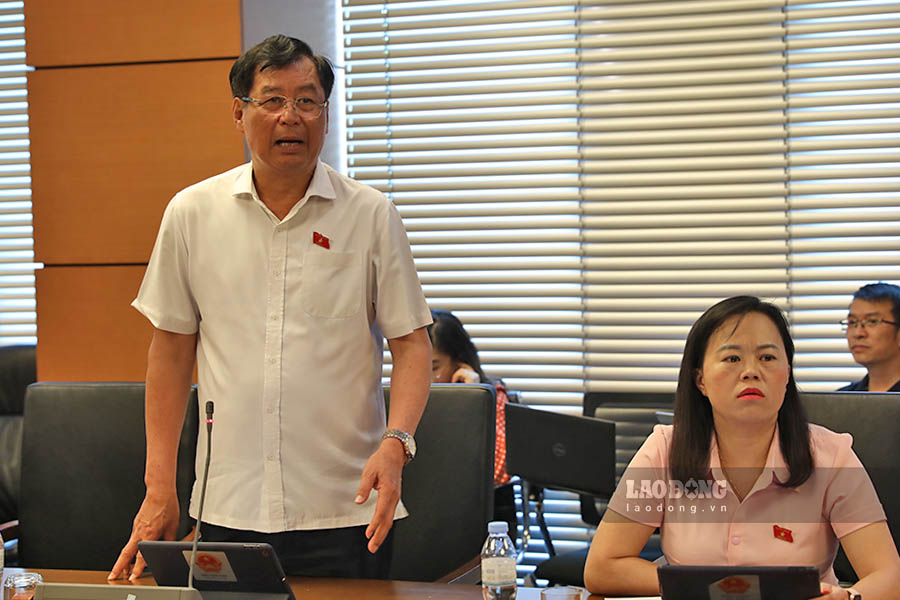Continuing to contribute opinions to the draft Law amending and supplementing a number of articles of the Law on Handling of Administrative Violations (XLVPHC), at the National Assembly's group meeting on the afternoon of May 16, delegate Tran Cong Phan - National Assembly Delegate of Binh Duong province said that he basically agreed with the report of the agency reviewing the above draft law.
However, the delegate said that there are still a few contents that need to be clarified. In particular, the delegate emphasized the content of fines in Hanoi and the inner city areas of centrally-run cities in the draft law.
Accordingly, the draft Law on Road Traffic Safety (amended) supplements the regulation that for Hanoi and the inner city areas of centrally-run cities (such as Ho Chi Minh City, Da Nang, Hue, Hai Phong...) the fine may be higher, but not exceeding 2 times the general fine applied to the same violation in the fields of road traffic; environmental protection...
"The same violation in Hanoi and centrally-run cities has different fines than other places. This requires giving reasons, why they are so different to be convincing", delegate Tran Cong Phan stated.

With the same content above, delegate Do Duc Hien - National Assembly Delegate of Ho Chi Minh City said that currently, due to the arrangement of the apparatus and administrative units, the concept of inner city is very difficult to determine.
"For example, the previous Capital Law stipulated that the inner city is the districts of Hanoi. Or when Ho Chi Minh City merged with Ba Ria - Vung Tau, Binh Duong, it was unclear how to determine what the inner city was like," said delegate Do Duc Hien.
Therefore, the delegate suggested that the drafting agency not stipulate this content, only apply it to Hanoi, not expand it to other cities. This content should only be considered when reviewing and evaluating when the organizational arrangement is stable.
Also contributing to the draft Law on Health Insurance (amended), delegate Dang Thi Bao Trinh - National Assembly Delegate of Yen Bai province assessed that the supplementation and revision of this draft Law needs to focus more on the factors of publicity, transparency, ensuring the rights of the people, and especially the ability of cadres in practical conditions.
Regarding the application of information technology in handling administrative violations, the delegate suggested clarifying the principles of using digital data.
According to the delegate, if not clarified, disputes may arise about the legal validity of electronic evidence, confidentiality responsibilities, and procedures to ensure the validity of making records and issuing sanction decisions.
"Currently, a traffic surveillance camera system is applied, but people are still skeptical about data interference. Without strict regulations, people may lose confidence in the automatic penalty system," delegate Dang Thi Bao Trinh commented.

The delegate also said that there is currently no mechanism to monitor progress or a reason for delay in verifying the details of administrative violations (stipulated in Article 59 of the Law).
According to the delegate, in recent times, many cases have been extended every month because "details are being verified", affecting the rights of subjects, especially in the field of land and environment, causing economic damage.
Therefore, the delegate proposed the verification of the details of the case of administrative violations to be within a specific working day from the date of making a record. In case of necessity, there must be a written extension to clearly state the reason and have a working date limit.











